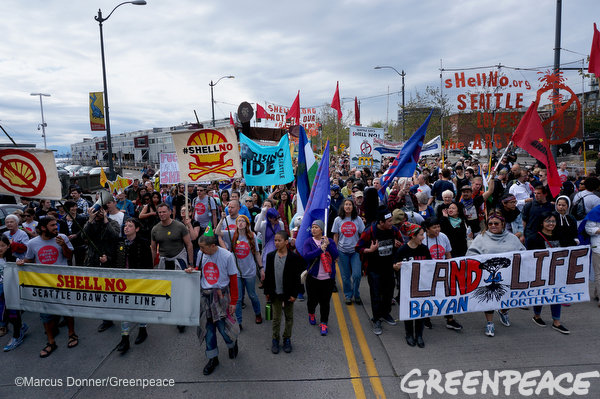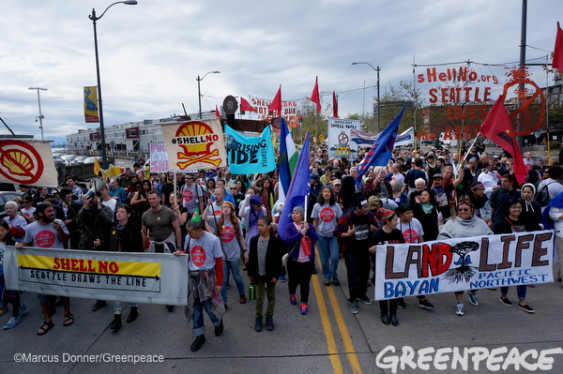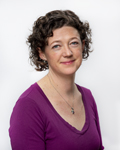Eric
Sierra magazine profiles one of the heroes of the Thin Green Line, “The Unstoppable Don Steinke.”
Increasingly, archeological evidence indicates that ancient peoples didn’t necessarily live short lives. To the contrary, they commonly were vigorous and healthy right through their 60s and into their 70s.
Kelsey H.
Full disclosure: as a very-recently previous female journalist, I tend to gravitate toward articles that discuss the journalism industry. Regardless, one of NPR’s reporters (and maybe even an editor) recently made a…poor decision, to put it mildly. They neglected to attribute a book written by two people (a man and a woman) appropriately. In the NPR segment, for which reporter Anders Kelto had a half hour interview in preparation with the female co-author, he named the male as the sole author of the book and included nothing from the woman’s interview. So she wrote about it—and in a much nicer way than I would’ve.
And, speaking of journalism, it subsists off now-pitifully small revenue from ads (and subscriptions, of course). Many peg much of the industry’s financial struggle to the rise of the internet. But…the internet wasn’t actually created as a commercial space. (In fact, it was illegal to use the internet commercially until 1992?!) One Illinois Communications professor, Robert McChesney, goes into the details of the internet, capitalism, and killing privacy as it relates to the Cambridge Analytica scandal. All politics aside, the further you read, the more brain-exploding this gets. Forewarning: It’s a long read.
I will say, though, I never understood why the Cambridge scandal was such an issue because I know for a fact websites and social platforms have all been gathering ridiculously crazy mounds of data on every single one of us, names attached, and selling it for mass amounts of money to corporations for years. This isn’t a new thing, and it happens every time you go online. Cookies: delicious food or a conglomerate and governmental tracking device? You decide.
But in a world with so many dang frustrations, it’s nice to know there’s still people out there doing some serious groundwork for change. One of those people is a 28-year-old Cincinnati, Ohio bus rider named Cam Hardy. He’s the president and co-founder of Better Bus Coalition, a legal assistant, and an activist who’s intent on pushing elected officials.
“Hardy could give it up if he wanted. He could buy a car, drive to work and avoid the headaches that come with public transit. But when he looks around the bus each morning, he knows that’s not the case for every rider. Sixty-two percent of Metro’s riders are black, according to a 2018 survey. And the majority, 61.7 percent, make less than $25,000 a year.
“I put myself in their shoes,” Hardy said. “When I look around the bus and it ain’t got no AC on it, it’s a bunch of black people, my elders, people that look like me, suffering on the bus. They can’t just say, ‘I’m buying a car.’ They’re an easy population to exploit and neglect. And that’s just being real.”
Aven
I’ve read and watched too much science fiction to be anything but apprehensive about the coming robot takeover, but here’s a list of books that present a more nuanced view. Maybe?
If it seems like you’ve been having a harder time sleeping comfortably at night during the summer time, that’s because climate change is affecting nighttime temperatures even more extremely than it is daytime temperatures. Which doesn’t bode well for outdoor workers like agricultural laborers and construction workers, “who can no longer avoid the heat by shifting their hours to work earlier or later in the day”, or for the homeless, who will no longer have the cool of night to recover from sweltering days.
But, for once, the climate change-related news isn’t all bad: Ireland just became the first country to completely divest from fossil fuels, while California announced that the state hit their 2020 emissions reduction target four years ahead of schedule. Additionally, the California economy grew 3% in 2016 while the carbon intensity of the economy declined by 6%, dramatically disproving all of the climate skeptics who claimed that reducing emissions would harm the economy and kill jobs.
And finally, an outstanding overview of the “conscious carnivore” movement and what it means to be a “food citizen”:
And the provocative subject of meat is perhaps our most powerful tool for effecting change within our own spheres. “When voting with our fork, we should remember that the freedom to buy food according to our values does not in and of itself change the power of commodities in our food system,” Holt-Giménez tells me. But in our conversation, I come to understand how it is an entry point to becoming a full-fledged food citizen instead of just a consumer of food.
John
In the “Weekend Marching” category, readers may know of events around the July 21 Zero Hour Youth Climate March. In Washington, DC, events include a Lobby Day on July 19, Art and Community Building on July 20, followed by the July 21 March. There are also sister marches across the US west coast and the rest of the country.
In the “amazing science” category, the Associated Press reported that researchers are still poring over the trove of satellite information on Pluto. A recently published paper noted that the “dwarf planet” contains dunes of frozen methane. Dunes have been reported on planets, a moon of Saturn, and a comet, but Pluto’s are “the only ones known to consist of frozen methane.”
John Abbotts is a former Sightline research consultant who occasionally submits material for Weekend Reading and other posts.









